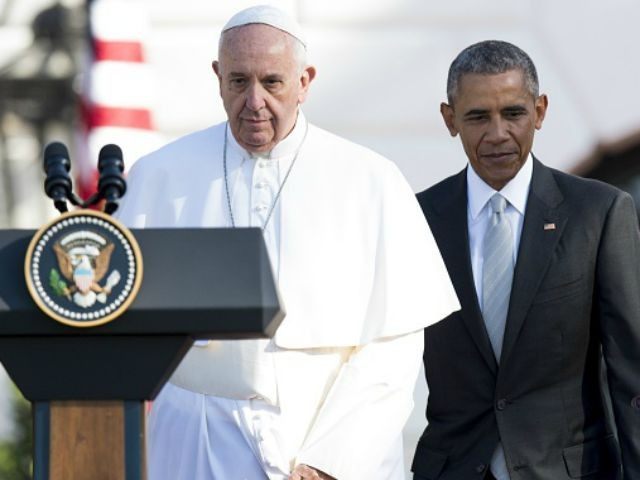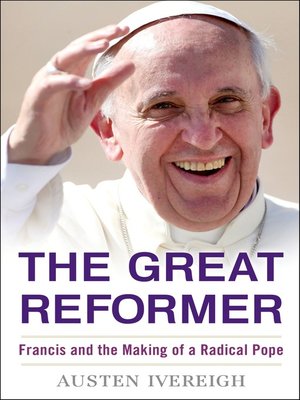 |
| Photo Credit: Alan Holdren/CNA. |
Jean Marie Guenois, Le FigaroHoly Father, you obviously cannot anticipate the debate of the synod fathers, we know that well.
But we want to know just before the Synod, in your heart as a pastor, if you really want a solution for the divorced and remarried. We want to also know if your ‘motu proprio’ on the speeding-up of annulments has closed this debate. Finally, how do you respond to those who fear that with this reform, there is a de-facto creation of a so-called 'Catholic divorce.' Thank you.
Pope Francis
I’ll start with the last one. In the reform of the procedure and the way, I closed the door to the administrative path, which was the path through which divorce could have entered. You could say that those who think this is 'Catholic divorce' are wrong because this last document has closed the door to divorce by which it could have entered. It would have been easier with the administrative path. There will always be the judicial path. Continuing with the third (question): the document…. I don’t remember the third but you correct me.
Jean Marie Guenois, Le Figaro
The question was on the notion of Catholic divorce, if the motu proprio has closed the debate before the synod on this theme?
Pope Francis
This was called for by the majority of the Synod fathers in the synod last year: streamline the process because there are cases that last 10-15 years, no? There’s one sentence, then another sentence, and after there's an appeal, there's the appeal then another appeal. It never ends. The double sentence, when it was valid that there was an appeal, was introduced by Papa Lambertini, Benedict XIV, because in central Europe, I won’t say which country, there were some abuses, and to stop it he introduced this but it's not something essential to the process.
The procedure changes, jurisprudence changes, it gets better. At that time it was urgent to do this, then Pius X wanted to streamline and made some changes but he didn’t have the time or the possibility to do it. The Synod fathers asked for it, the speeding up of the annulment processes. And I stop there. This document, this ‘motu proprio’ facilitates the processes and the timing, but it is not divorce because marriage is indissoluble when it is a sacrament. And this the Church cannot change. It's doctrine. It’s an indissoluble sacrament. The legal trial is to prove that what seemed to be a sacrament wasn't a sacrament, for lack of freedom for example, or for lack of maturity, or for mental illness.
There are so many reasons that bring about (an annulment), after a study, an investigation. That there was no sacrament. For example, that the person wasn't free. Another example: now it’s not so common but in some sectors of common society at least in Buenos Aires, there were weddings when the woman got pregnant: 'you have to get married.'
In Buenos Aires, I counselled my priests, strongly, I almost prohibited them to celebrate weddings in these conditions. We called them “speedy weddings”, eh? (They were) to cover up appearances. And the babies are born, and some work out but there's no freedom and then things go wrong little by little they separate (and say) 'I was forced to get married because we had to cover up this situation” and this is a reason for nullity. So many of them.
Cases of nullity, you have, you can find them (the reasons) on the internet there all there are many, eh? Then, the issue of the second weddings, the divorcees, who make a new union. You read what, you have the “instrumentum laboris.” what is put in discussion seems a bit simplistic to me to say that the Synod is the solution for these people and that they can have communion. That's not the only solution. No, what the “Instrumentum laboris” proposes is a lot more, and also the problem of the new unions of divorcees isn't the only problem. In the “Instrumentum laboris” there are many. For example, young people don’t get married. They don’t want to get married. It's a pastoral problem for the Church.
Another problem: the affective maturity for a marriage. Another problem: faith. 'Do I believe that this is for ever? Yes, yes, yes, I believe.' 'But do you believe it?' the preparation for a wedding: I think so often that to become a priest there's a preparation for 8 years, and then, its not definite, the Church can take the clerical state away from you. But, for something lifelong, they do four courses! 4 times… Something isn't right. It’s something the Synod has to deal with: how to do preparation for marriage. It’s one of the most difficult things.
There are many problems, they're all are listed in the “Instrumentum laboris." But, I like that you asked the question about 'Catholic divorce.' That doesn't exist. Either it wasn't a marriage, and this is nullity -- it didn't exist. And if it did, it's indissoluble. This is clear. Thank you.
Comments in the box, if you have any thoughts. I think you might just have some! Let's have some 'parrhesia'.
There is a lot in there and the stand-out quote centres on Holy Communion for the divorced and remarried. The answer to the question of a 'solution' that involves the divorced and remarried receiving Holy Communion is the thinly disguised non-answer of...
"That's not the only solution."
However, our survey of 2,000 years of Catholic teaching from the beginning said
'Far from a 'solution', that's not a possibility at all.'
His Holiness discusses other issues arising from his trip to the US. The full interview with Pope Francis can be read here.
Update; Ed Peters of In the Light of the Law has made some headway through the thicket of these interview responses. His review of His Holiness's comments can be read here.



















